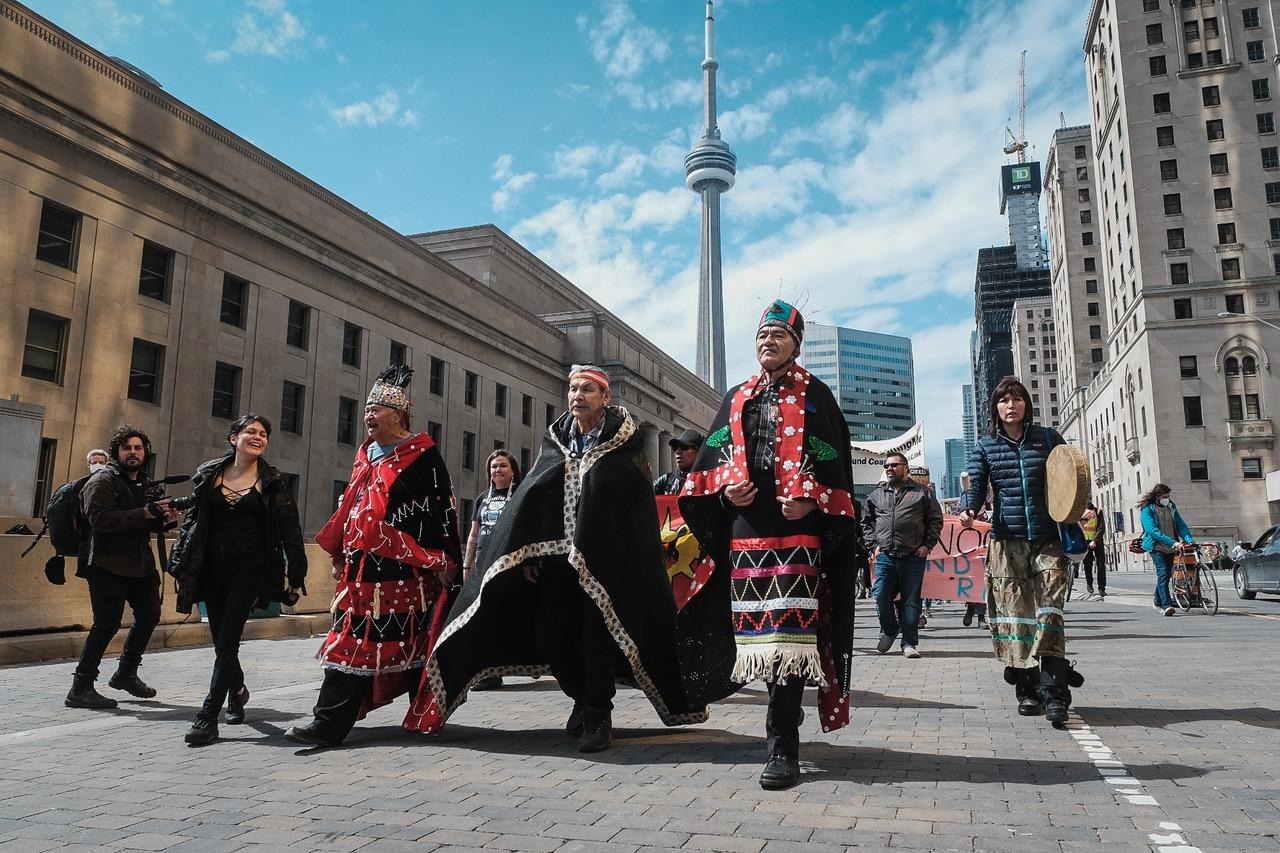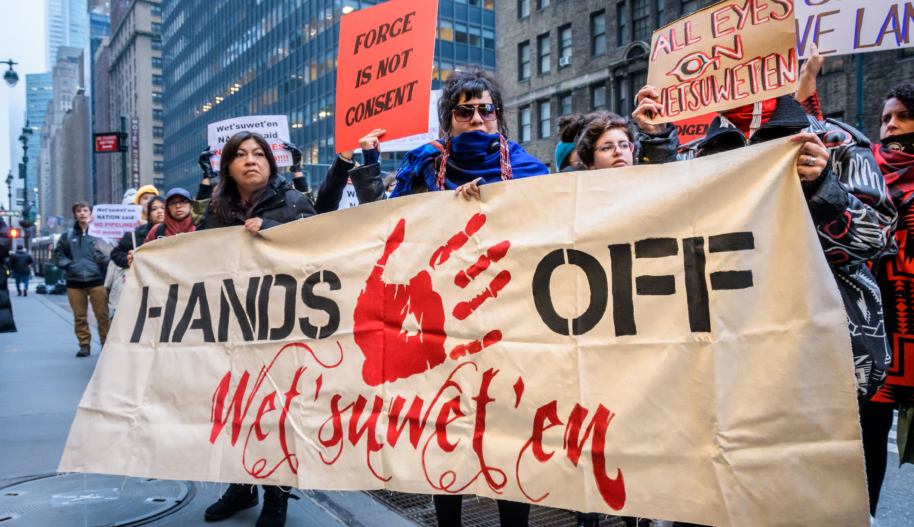The Indigenous Wet’suwet’en Nation is protecting its ancestral lands and waterways against the construction of a gas pipeline. Wet’suwet’en land defenders and their supporters who oppose the construction of the pipeline are experiencing surveillance, harassment and intimidation at the hands of the Canadian police. The Canadian police have unlawfully arrested Wet’suwet’en land defenders and their supporters. Seven land defenders have started trial or go on trial on October 30, 2023 and January 2024. Authorities must drop the criminal contempt charges against those arrested solely for exercising their Indigenous rights and their rights to freedom of expression and peaceful assembly.
Here’s what you can do:
Write to the Attorney General urging her to immediately drop the charges against the criminalized land defenders who oppose the Coastal GasLink pipeline.
Write to:
Attorney General Niki Sharma
2135 East Hastings Street, Vancouver
British Columbia, Canada
Email: niki.sharma.mla@leg.bc.ca
Background
The 1997 Delgamuukw-Gisday’wa decision by the Supreme Court of Canada affirms that the Wet’suwet’en Hereditary Chiefs are the authorities of the Nation in accordance with the Wet’suwet’en’s governance structure. All five clans of the Wet’suwet’en oppose the pipeline. Nevertheless, the project is proceeding without the Nation’s free, prior and informed consent (FPIC), in violation of ‘Anuc niwh’it’en (Wet’suwet’en law), Canadian constitutional law and Canada’s international human rights obligations, including the United Nation Declaration on Rights of Indigenous People (UNDRIP). Coastal GasLink (CGL) is a pipeline construction company subsidiary of TC Energy Corporation. The CGL pipeline, spanning 670 kilometers would transport fracked gas to the proposed LNG Canada processing plant.
In December 2018, the British Columbia Supreme Court granted the pipeline company an interim injunction which prevented land defenders from blockading the main road through Wet’suwet’en territory to attempt to stop pipeline construction. In February 2019, Wet’suwet’en Hereditary Chiefs called for a stop work order on the pipeline. In December 2019, the B.C. Supreme Court granted an interlocutory injunction order, which includes enforcement provisions. Operating under these injunctions, the Royal Canadian Mounted Police (RCMP) and its Community-Industry Response Group (C-IRG) has surveilled, harassed and intimidated Wet’suwet’en land defenders, including Hereditary Chiefs and matriarchs.
Moreover, the RCMP and C-IRG have forcibly removed and unlawfully arrested Wet’suwet’en land defenders and their supporters through militarized police raids on their territories. Amnesty International raised these concerns with the pipeline company via letters sent on July 12, 2022, May 17, 2023, and July 17, 2023, and received broad responses that did not address these allegations. In June 2023, Amnesty International met with representatives of CGL and again raised concerns about these abuses but still received no response regarding these incidents.
During four large-scale police actions in January 2019, February 2020, November 2021 and March 2023 in response to Wet’suwet’en people and their supporters defending their land, over 75 people were arrested and detained, including legal observers and members of the media. In June and July 2022, the Attorney General of British Columbia decided to prosecute 20 land defenders with criminal contempt for allegedly defying the court order (the interlocutory injunction) to stay away from pipeline construction sites.
In December 2022, five land defenders pleaded guilty, which resulted in a $500 fine for three and 25 hours of community service for the other two. Though the Crown issued a stay of proceedings for several legal observers, the remaining land defenders will stand trial from May 2023 to January 2024. Nearly $37 million in public money was spent between 2019 and March 2023 to surveil and police Wet’suwet’en land defenders, Indigenous neighbors, such as the Gitxsan, and allies.

Since 2009, the Wet’suwet’en land defenders have established several sites and structures on the land to affirm their jurisdiction over the territory. Further, the Wet’suwet’en have implemented a FPIC protocol that requires any visitors to the territory to seek permission from the Hereditary Chiefs to enter. CGL provided documentation regarding the consultation process with the Wet’suwet’en Nation regarding the pipeline project, however, upon reviewing the documentation provided, Amnesty International determined that the consultation process did not comply with international human rights standards and the Nation ultimately did not give its free, prior and informed consent for the project to proceed.
As part of its Early Warning and Urgent Actions Procedures, the United Nations Committee on the Elimination of Racial Discrimination (CERD) called on Canada in December 2019 to suspend all permits and approvals for the construction of the CGL pipeline until the free, prior and informed consent of the Wet’suwet’en people is obtained, following the full and adequate discharge of the duty to consult. Amnesty International has sent formal interview requests and questions to a series of Canadian federal and provincial authorities. While all of the authorities declined to meet with Amnesty International, written responses were received from the RCMP, the Premier of B.C. and the B.C. Energy Regulator. The responses were broad statements and did not respond to the questions posed by the organization.




























